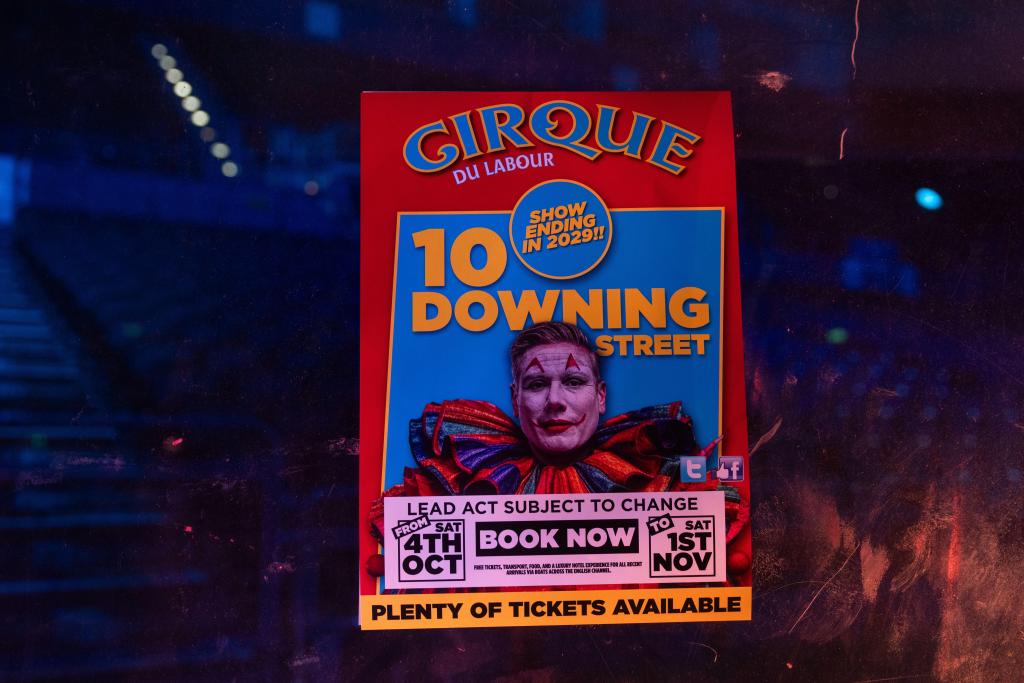How amusing to hear Steve Coogan and Emily Maitlis pontificate about the dreaded ‘establishment’ on Maitlis’s News Agents podcast recently. During a discussion about Coogan’s role as Brian Walden in Brian and Maggie – Channel 4’s two-part drama about Walden’s final, sensational interview with Margaret Thatcher in 1989 – the comedian admits that although he identifies with Thatcher’s lower-middle-class background, he had concerns that the script might make her seem too sympathetic. Heaven forbid. Coogan considers the drama to be as much about class as a lament for long-form interviews, suggesting that intelligent outsiders such as Walden, Thatcher and indeed Coogan himself will always struggle to break through the cut-glass ceiling.
The reason I found this so entertaining is because you’d be hard pressed to find two more establishment figures than Coogan and Maitlis, and yet here they were intimating that they are the true outsiders, having to fend off a powerful cabal of upper-class twits. I’ve heard this argument before from leftist friends who remain convinced that the huddled masses are still being lorded over by members of the Lords. I sometimes wonder whether any of them has actually met a modern-day aristo. The ones I know wield about as much power and influence as the mangy labradors they keep chained up outside their stately homes. Most seem to be in a perpetual state of financial crisis. Yes, they’ve inherited castellated millstones, but step beyond the porticoed entrance of your average country seat and the unsanitary conditions soon become apparent. And yet the newly moneyed elite continue to gaslight us into believing that a bunch of ruddy-faced shire-buffoons are in charge rather than the likes of Coogan and Maitlis.
During the interview, Coogan’s contempt for easily led populist voters soon became apparent, despite his plea that we should prioritise the most disenfranchised in society. Whether the poor deserve government help presumably depends on their political leanings – the rest can bugger off back to Clacton.
As Coogan moved on to the tyranny of the right-wing press and how the sexes need to have a ‘conversation’ in order to rid the world of ‘right-wing misogynists’ (a one-way conversation, presumably), I began to wonder why he couldn’t just stick with what he’s good at. Isn’t it enough to have played Alan Partridge, surely one of the funniest comic creations of all time? Why is he wasting time on political posturing? It’s not what he’s being paid for. He’s a comedian.
Unlike his seamless transformation into Partridge, whenever Coogan steps into more serious roles I immediately become aware of the joins. I just didn’t believe his turn as Walden: it felt like a ‘performance’, all technical tell with very little show. Even the Brummie accent veered all over the place, only occasionally landing in Walden’s native West Bromwich. Harriet Walter, who plays Mrs T, felt much more invested – but by overdoing the flashing evil-stare shtick the character at times lapsed into cartoon cliché. Far from being a heartless tyrant, the real Maggie comes across in the 1989 interview as touchingly vulnerable when confronted by the unrelenting Walden. Sadly Walter, a proud socialist, couldn’t quite bring herself to portray the less metallic side of the Iron Lady. But in the end it was Coogan’s performance that let the project down.
It may be galling for him to admit that his talent rests on a single character, but there comes a time when every man must know his limitations
When an actor becomes typecast it can spell the end of their career so it’s hardly surprising they want to play against type. It’s a sad irony that talented thesps such as the late Harry H. Corbett of Steptoe and Son can vanish into obscurity simply because of the brilliance of a single role. Corbett showed great promise and could have gone on to play even more interesting characters – but his alter ego Harold, the frustrated rag and bone man, came to define and eventually bury him.
Jon Hamm, who portrayed the dapper Don Draper in Mad Men, complained that after the success of the show he received ‘about 40 scripts that were all set in the Sixties, or had me playing advertising guys’. Hamm has been largely absent from our screens ever since, which is a shame because I would like to have seen his full range.
Coogan is a different kind of performer. His limited range is actually his greatest strength. As he approaches his autumn years it may be galling for him to admit that his talent rests on a single character, but there comes a time when every man must know his limitations. Rarely has a comic creation been so beloved by so many for so long (Partridge has been making us wince for more than 30 years), and I for one am looking forward to Alan’s next project entitled ‘How Are You?’ in which the head of Peartree Productions assesses the mental health of the nation. Sometimes more of the same with an added twist is all that’s required.








Comments